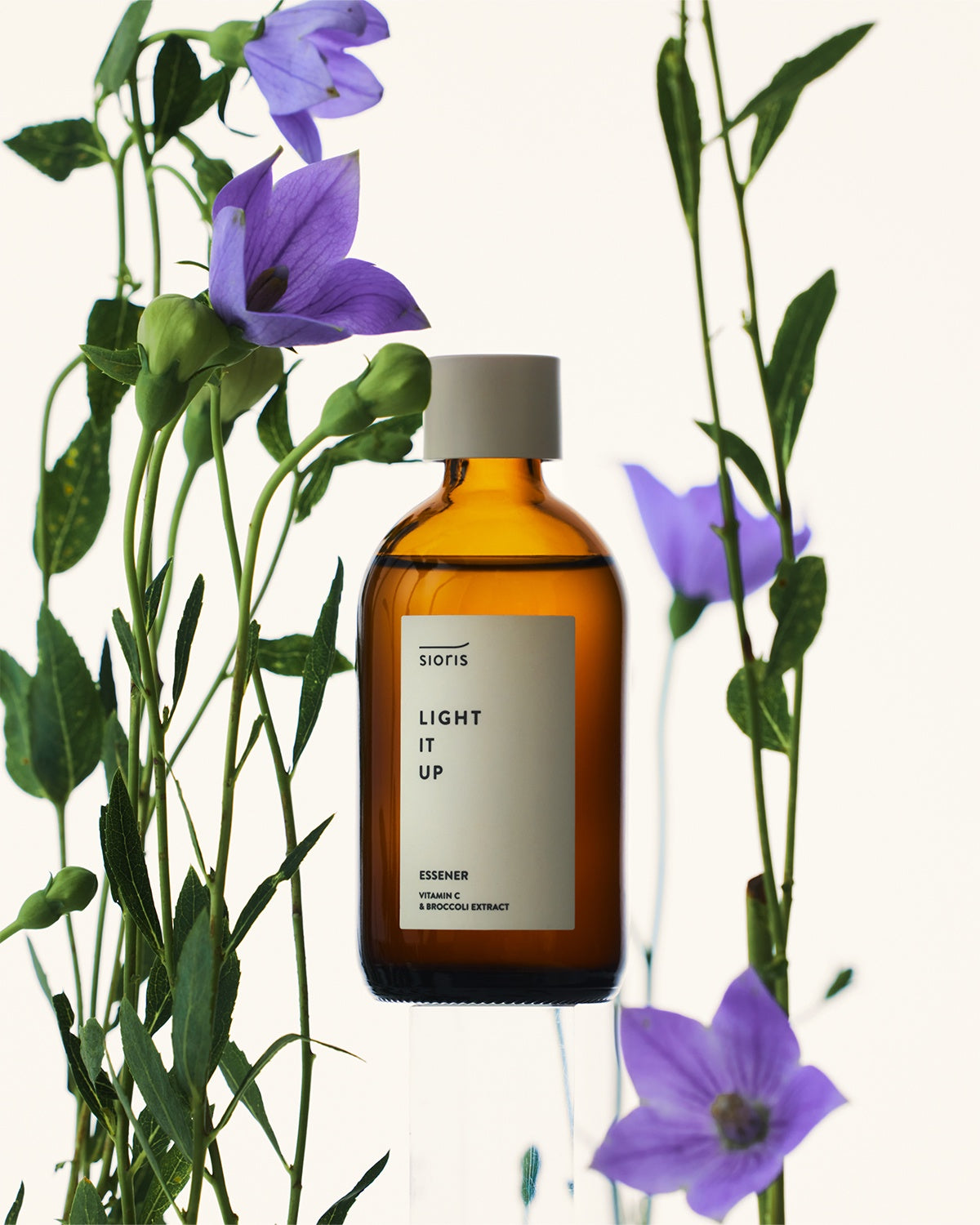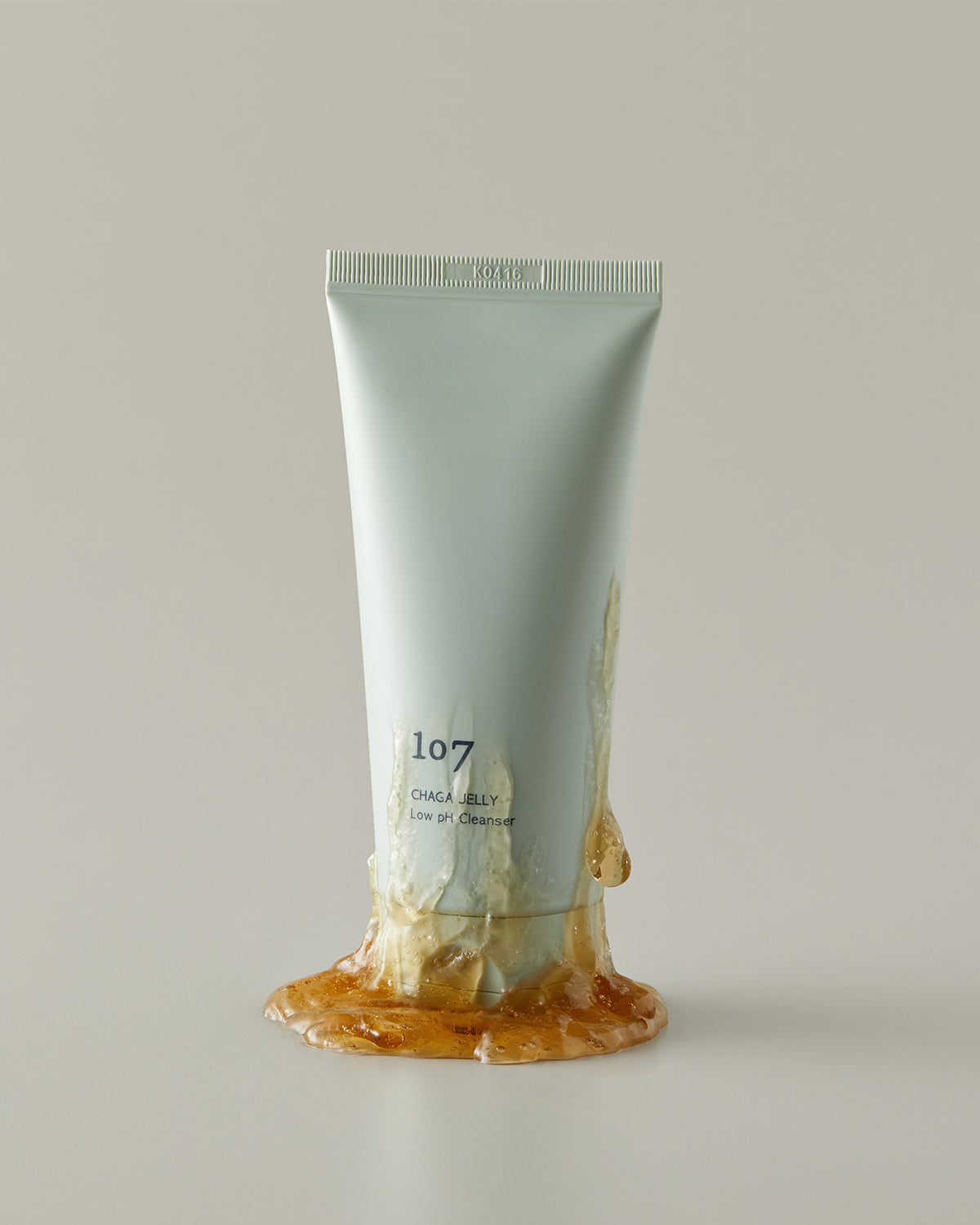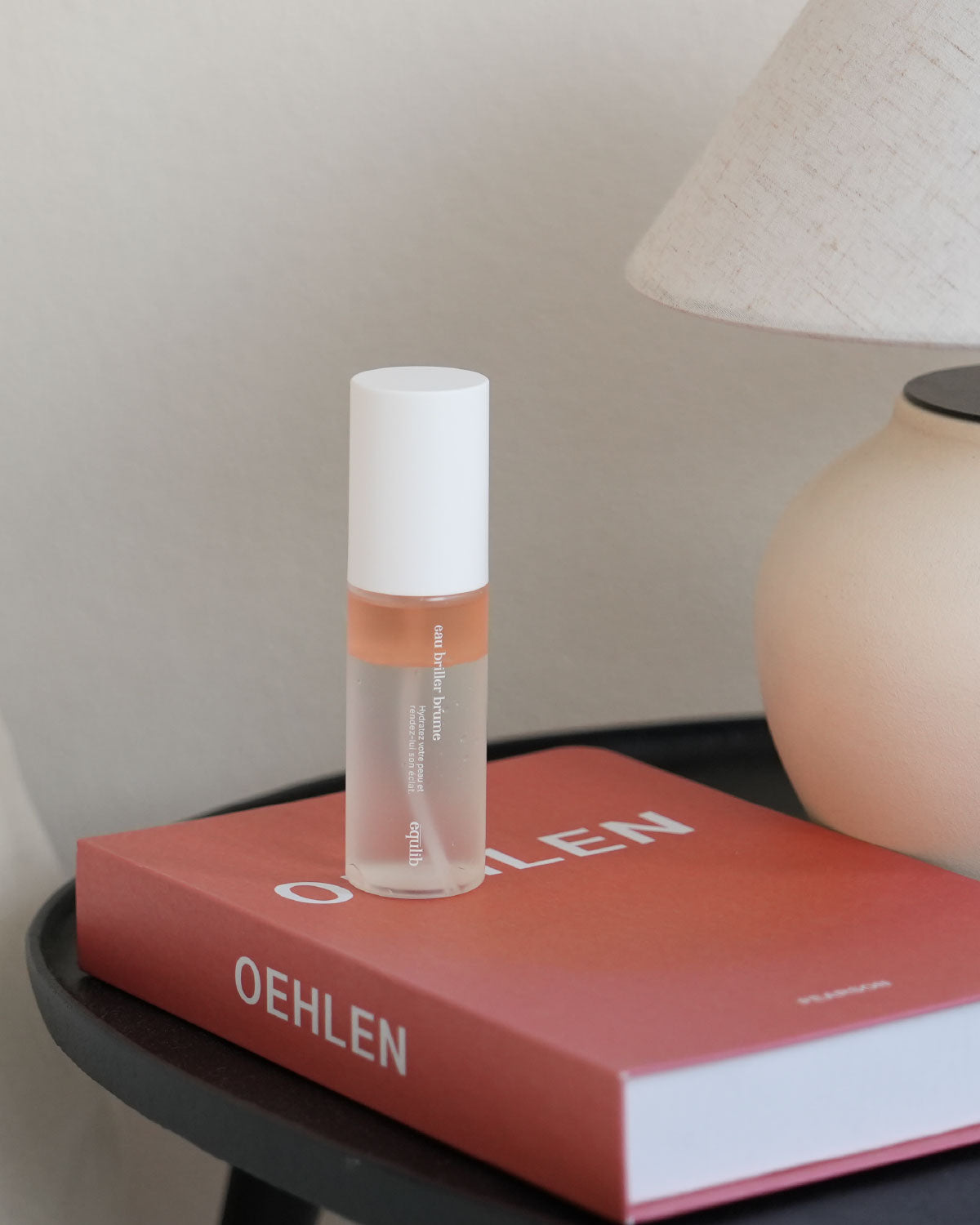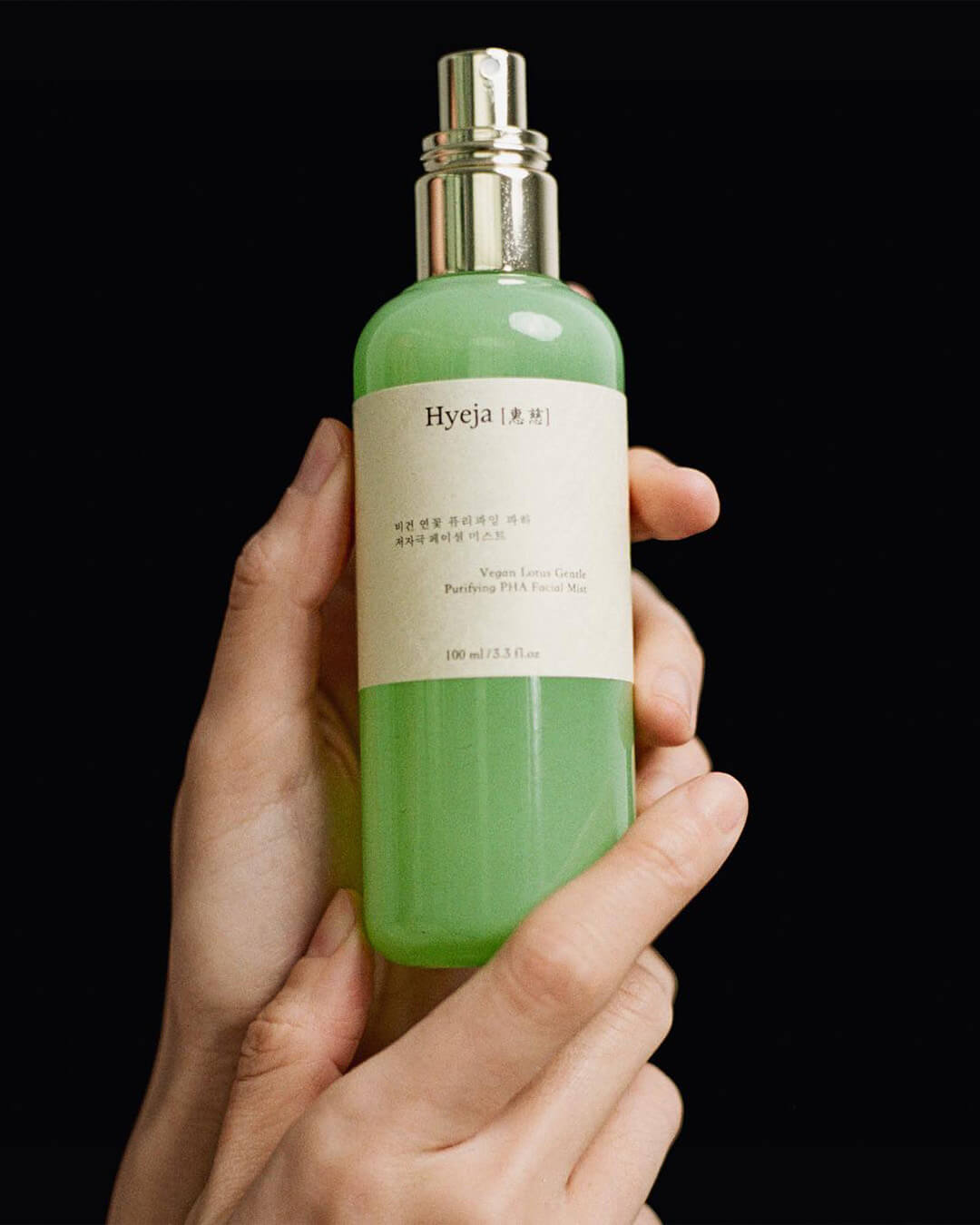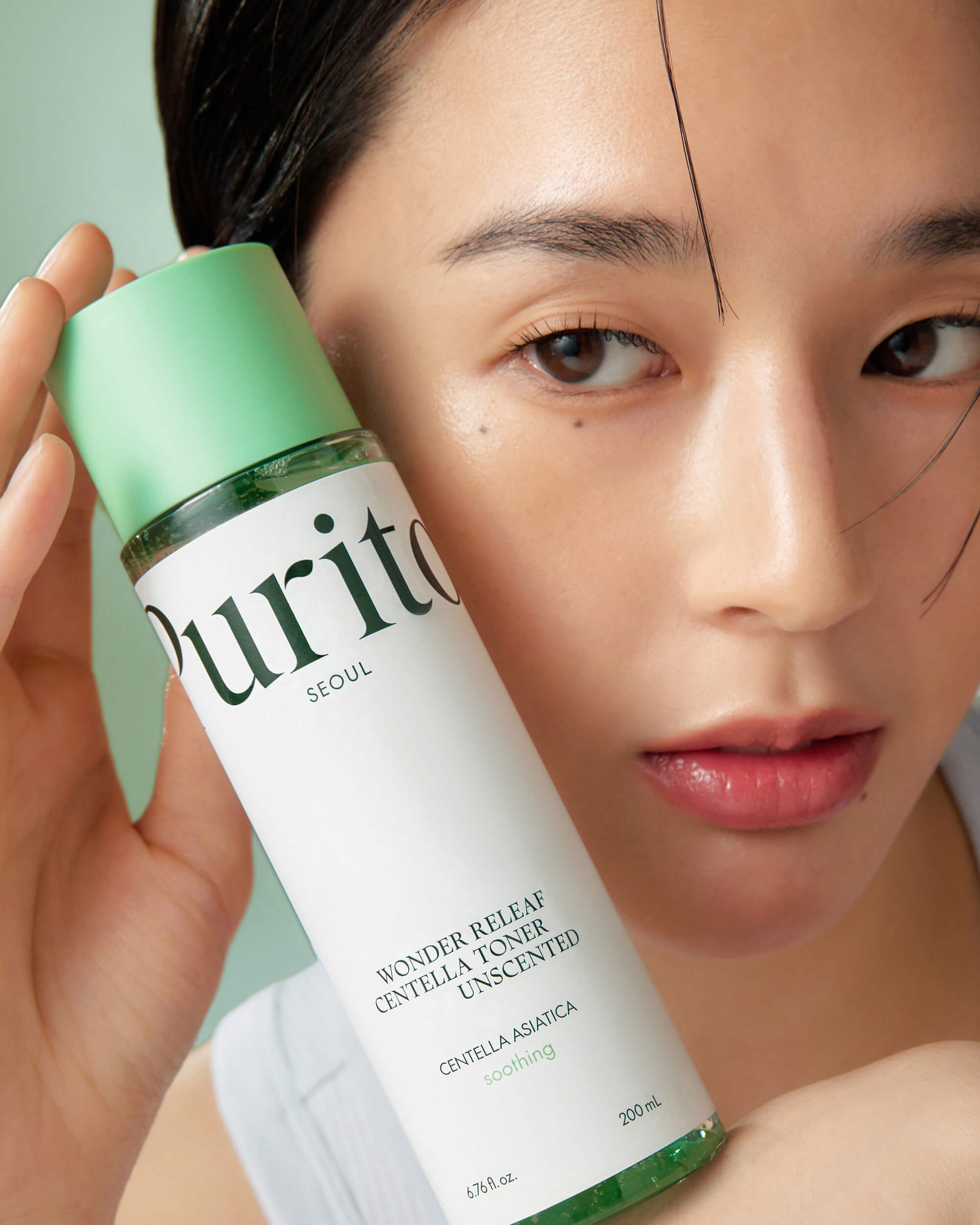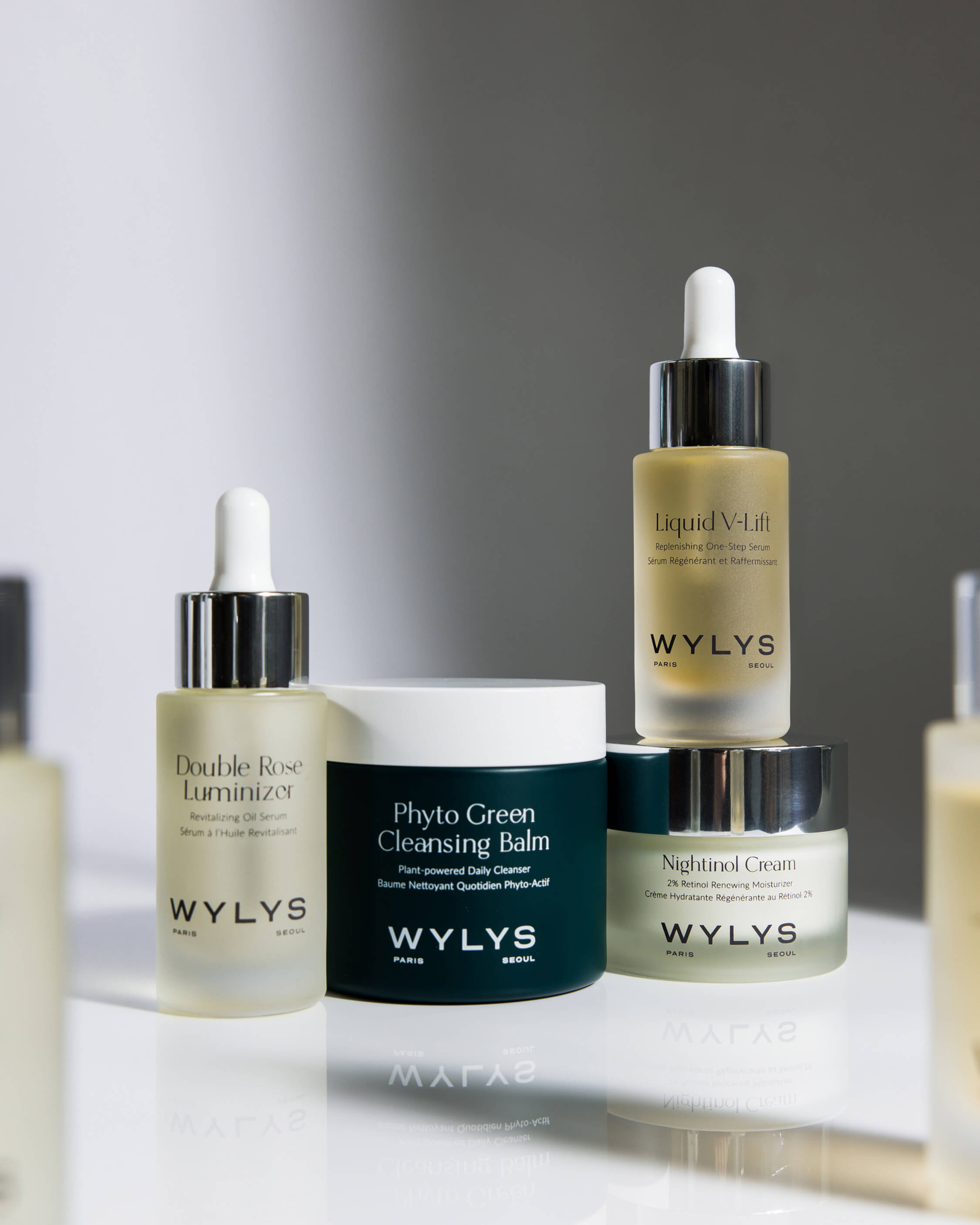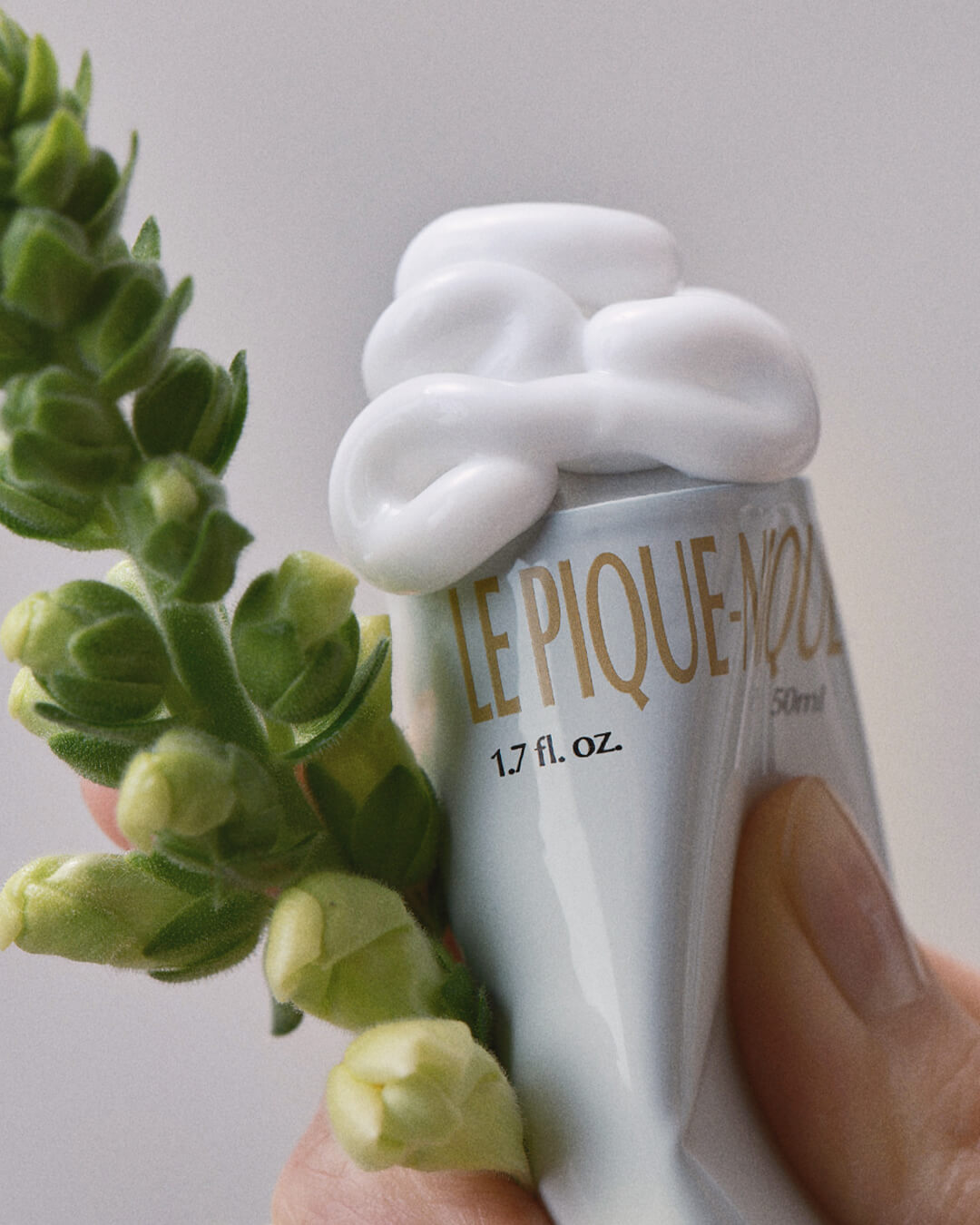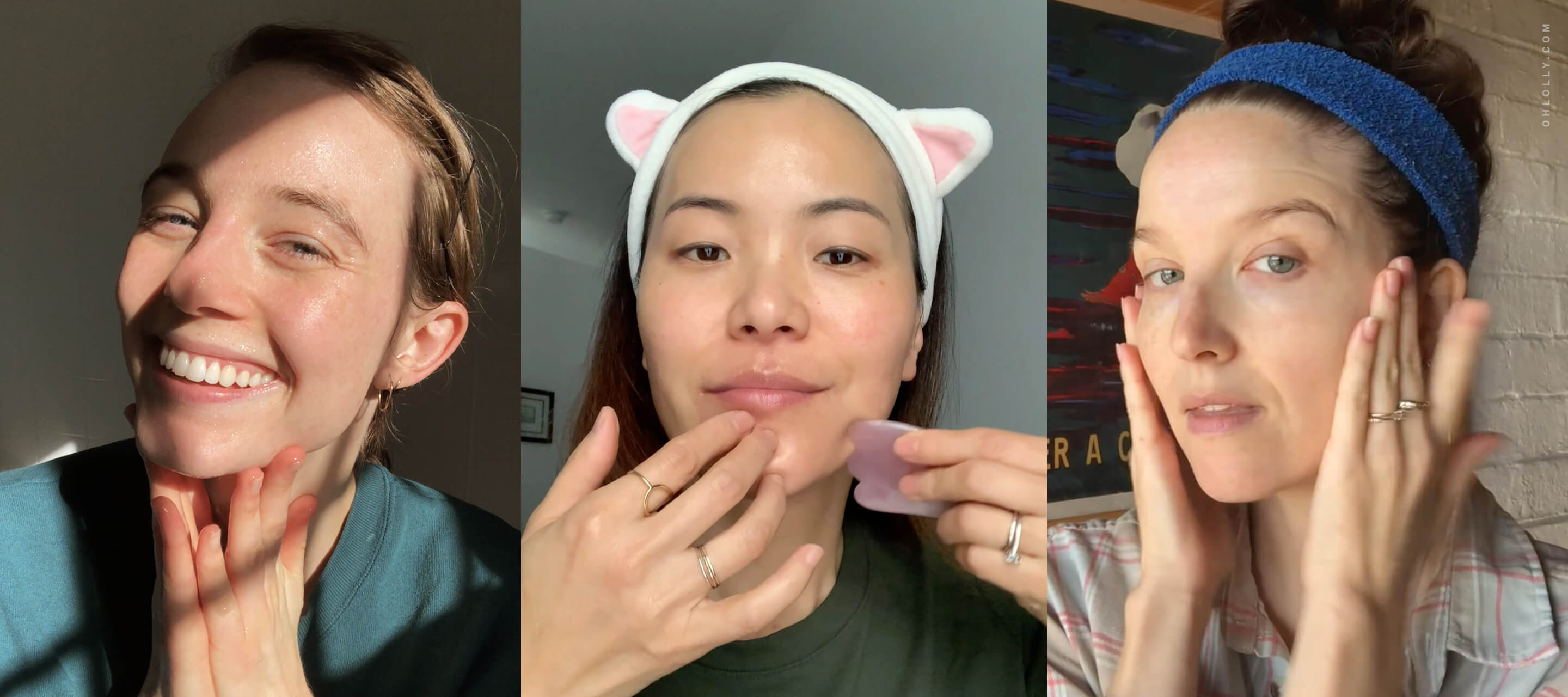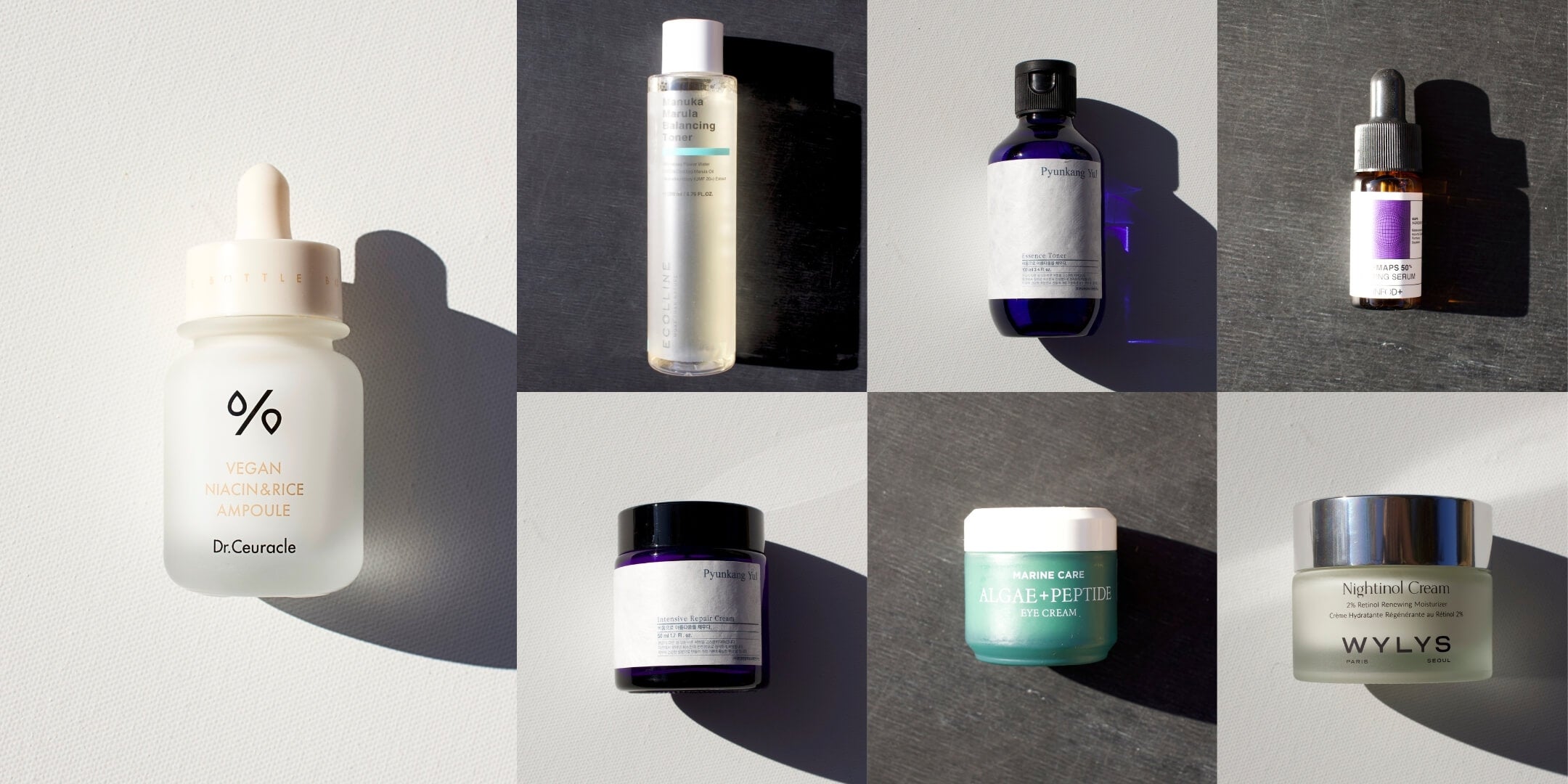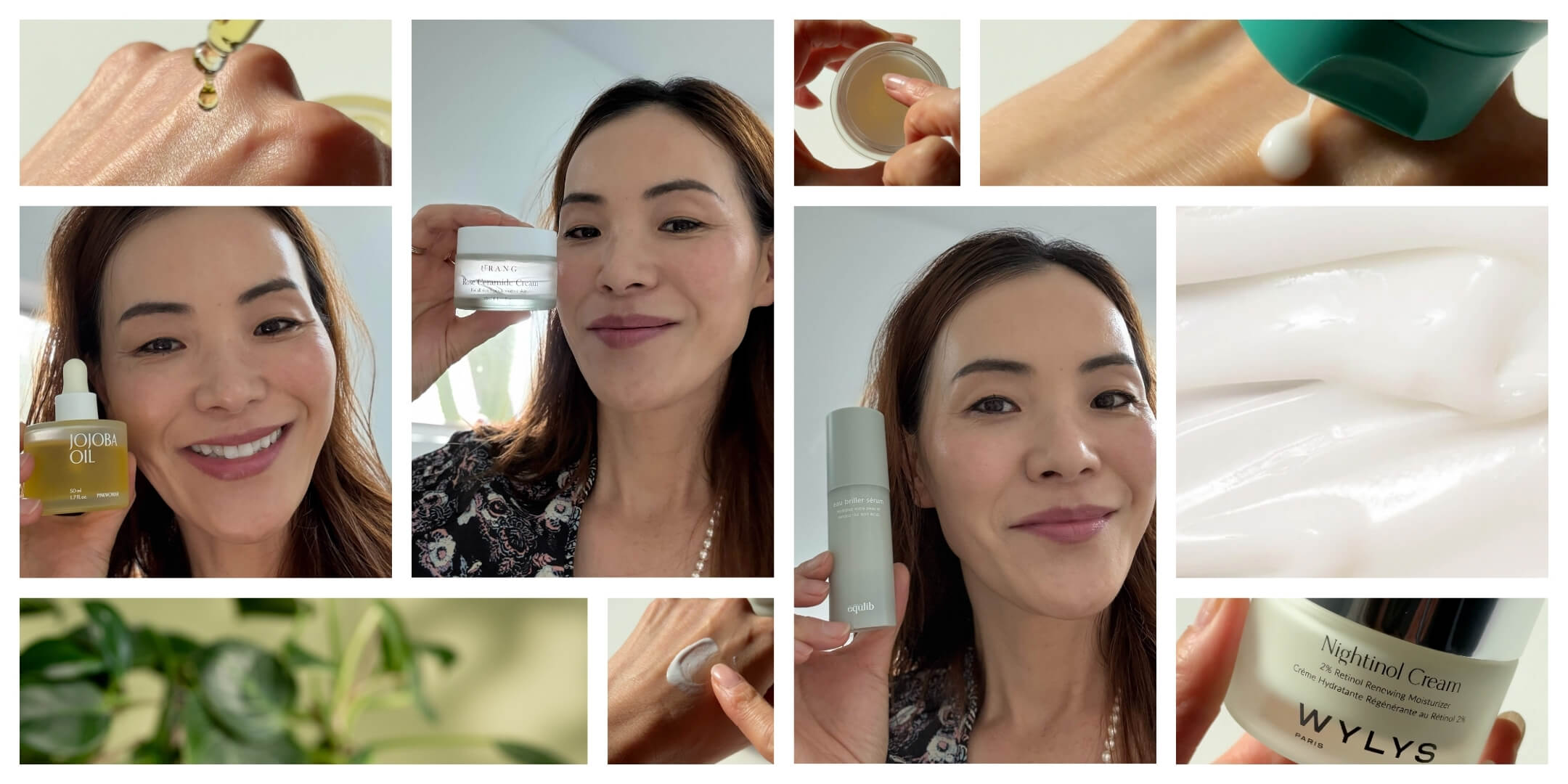Wildly popular for fading acne scars, sun damage and lessening fine lines, a group of vitamin A derivatives called retinoids have long been a go-to ingredient in skincare routines. These are usually only available with a prescription (think Retin-A, Tazorac, Adapalene) and work to boost cell turnover and catalyze collagen production.

A milder form of retinoid called retinol is also available over the counter, which means it’s usually this version most people encounter first. Retinol works in the same way as retinoids, just in a weaker ester form that breaks down into the retinoic acid that acts on the skin. In this way, retinols tend to take longer to show results than retinoids.
Until fully acclimated, both retinols and retinoids greatly sensitize the skin (and should always be used with sunscreen) and can cause burning, scaling and other irritations that can be too harsh for some skin types. Additionally, pregnant and breastfeeding women are often advised to avoid vitamin A, retinol-containing products. So, what alternatives exist for keeping skin glowing as it ages? Keep reading.

Vitamin C
As an antioxidant, topical Vitamin C is great for reducing the damaging effects of free radicals. It’s been known to slow wrinkles, fade hyperpigmentation, boost elasticity and even help with acne. Especially when used together with an SPF, Vitamin C provides both short and long-term skin benefits, often without any harsh side effects.
The key with Vitamin C is to choose as high and pure of a potency as your skin can handle. Look for OTC products that contain up to 10% ascorbic acid or ascorbyl glucoside. It’s also possible to get higher concentrations of 20% Vitamin C with a dermatologist's prescription. Using it consistently will help expedite results. Capitalize on Vitamin C’s UV-protective effects during the day and collagen-catalyzing benefits while you sleep.
Try it in: Dr. Ceuracle's Pure VC Mellight Ampoule or Goodal's Green Tangerine Vita C Dark Spot Serum
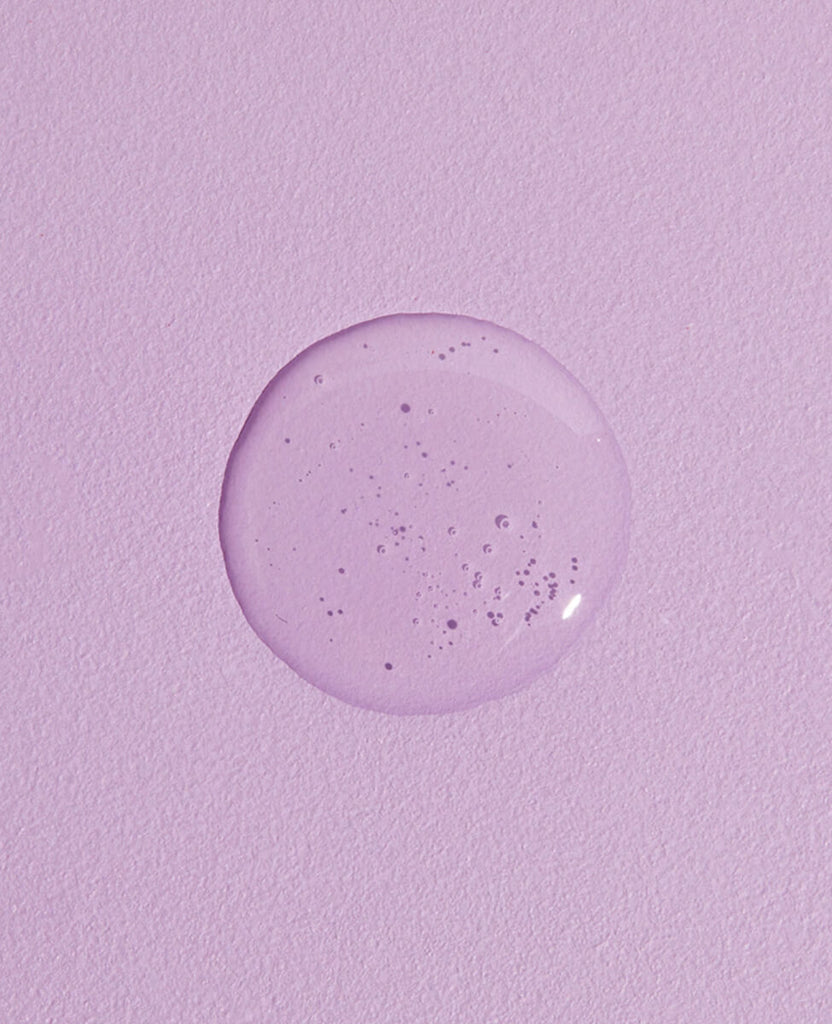
Niacinamide
Niacinamide is a water-soluble form of Vitamin B3 that’s also an antioxidant (aka, more free radical-fighting). It’s typically used alongside retinol products to minimize drying and irritation, but its benefits can be stand alone. Niacinamide can help fade dark spots, blotchiness and wrinkles. It also can work as an antibiotic to help fight acne.
Niacinamide also helps with skin texture. It promotes the formation of barrier-building ceramides and elastin, which maximize moisture retention and help the skin stay plump and smooth. A great tip is to layer a niacinamide-containing product after a BHA to increase its overall concentration to 4-5%. This helps to unclog pores, brighten and soften the complexion.
Try it in: Cosrx's Galactomyces + Niacinamide Essence

Rosehip Oil
Though its effects won’t be as dramatic as a retinoid, rosehip oil is a gentle, natural alternative for a well-aging routine. Pressed from the fruit and seeds of the rose plant, rosehip oil is full of Vitamins A and C that, in addition to the benefits we’ve already mentioned, will boost cellular turnover and transform dullness into radiance.
Rosehip oil also helps protect against sun damage, fade hyperpigmentation and moisturize the skin. It absorbs easily as a drier oil so it won’t feel greasy, making it a great option for all skin types as well.

Try it in: Urang's Vitamin Oil or WYLYS Double Rose Luminizer
Bakuchiol
Bakuchiol is a plant-based retinol alternative from the seeds of the Babchi plant. It too stimulates collagen production, fades hyperpigmentation and redness, and lessens the appearance of wrinkles.
Used for years in Chinese and Indian medicine, bakuchiol isn’t a derivative of Vitamin A but will bind to the same receptors as retinol, hence its similar effects. It’s less irritating* than a retinoid or retinol product, however, studies are still inconclusive as to whether bakuchiol is truly as effective. It can be a great “starter” ingredient if you’ve been considering adding a retinol-type product to your routine and want to test it out.
*Some extremely sensitive skin types report that bakuchiol is still too harsh, so as with any new active ingredient, incorporate it slowly into your routine to see how your skin reacts.

Antioxidants
No matter what, as we age and become more susceptible to UV damage and environmental stress, oxidation occurs. This is the process by which compounds in our skin destabilize and lose electrons. As a result, we can see weakening elasticity, increasing fine lines and wrinkles, more rough patches, blackheads... you get the picture.
If specific active ingredients are too much for your skin, supercharging your routine with antioxidants is always a good call. Antioxidants do what they sound like -- they help re-stabilize your skin's ability to produce collagen, retain moisture, have healthy cell turnover and stay bright and bouncy. Powerful antioxidants to look out for in skincare include: B vitamins, vitamin C, vitamin E, resveratrol, coQ10, niacinamide, and polyphenols in plant products like fermented tea extracts, fruits and vegetables.

Try them in: Dr. Ceuracle's Royal Vita Propolis 33 Ampoule
Final Considerations
Overall, while retinol and retinoid products can offer considerable visible benefits, remember that skincare is never a quick fix. It’s important to maintain a consistent routine with products that suit your unique skin type, while also balancing stress and allowing yourself sufficient sleep. This is what ultimately enables you to build the foundations of healthy skin and glow for years to come.
Send us your skincare related questions to hello@ohlolly.com. We're here to help!
Vitamin A chemical structure image credit: National Center for Biotechnology Information

